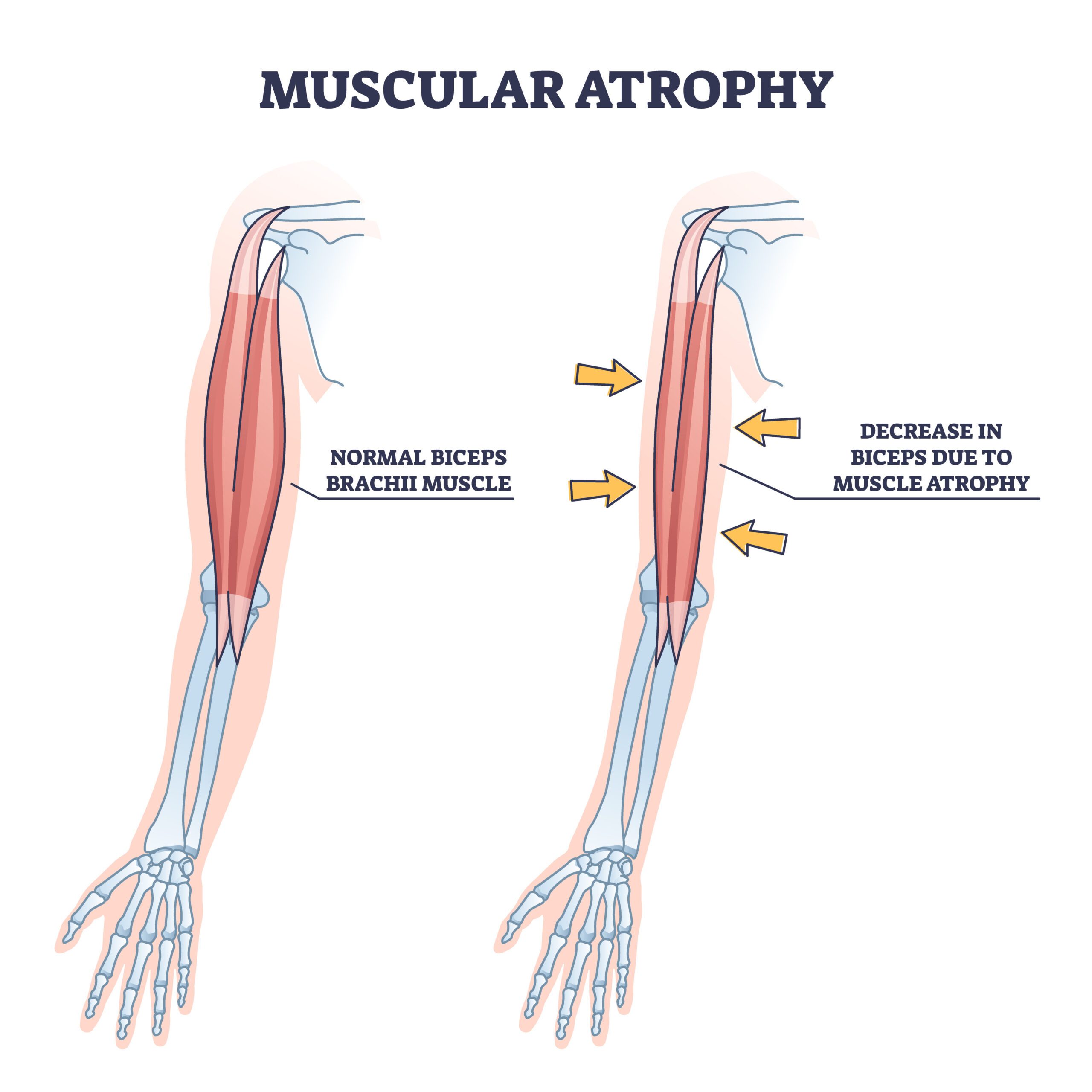The Ozempic Effect: How This Weight Loss Drug Impacts Muscle Mass
December 4, 2023
 919
919 
Welcome to our blog! Today, we’re going to talk about a medicine called Ozempic.
Recently, lots of people have started using Ozempic to help them lose weight.
But did you know that losing weight isn’t always just about getting rid of fat?
Sometimes, it can also mean losing muscle, which is not so good.
In this blog, we’ll explore how Ozempic affects our muscles when we use it to lose weight.
Muscles are super important for our health, so it’s a big deal to understand what happens to them.
We’ll dive into why muscle matters, how Ozempic can change muscle mass, and what this means for our bodies.
Stay tuned to learn more about this interesting topic in a way that’s easy and fun to understand!
Understanding Muscle Mass in Weight Loss

Alright, let’s jump into a really cool part of our bodies: muscles!
You know, muscles are not just about making us strong and helping us lift things.
They play a huge role in keeping us healthy in many ways.
Muscle Mass and Our Health
Muscles are like little powerhouses in our bodies.
They use energy all the time, even when we’re just sitting around.
This is part of something called our metabolism, which is like a motor that keeps our body running.
The more muscle we have, the faster our metabolism works. This means we burn more energy, which keeps us fit and healthy.
Healthy Weight Loss vs. Unhealthy Weight Loss
Now, let’s talk about losing weight. When people say they want to lose weight, what they usually mean is they want to lose fat.
That’s the healthy way to do it.
Our body has fat that it can spare, and when we lose it the right way, we feel and look better.
But there’s another kind of weight loss that’s not so great: losing muscle.
When we lose muscle, our metabolism slows down, which is the opposite of what we want. It’s like turning down the motor in our body.
Plus, losing muscle can make us weaker and less able to do fun stuff like playing sports or even just running around.
So, when we’re talking about weight loss, we want to focus on losing fat, not muscle.
This keeps our motor running fast and keeps us strong and healthy. In the next parts of our blog, we’ll see how Ozempic fits into this picture and what it does to our muscles.
Ozempic and Muscle Mass Reduction

Now, let’s dive into something really interesting: Ozempic and how it can affect our muscles.
Ozempic is a medicine that doctors often give to people with a certain kind of diabetes.
But lately, it’s been used for helping with weight loss too. Here’s the twist though – while it can help with losing weight, it might also cause a decrease in muscle mass.
Let’s explore how and why this happens.
How Does Ozempic Lead to Muscle Mass Reduction?
Some studies and medical experts have noticed that people who use Ozempic for weight loss sometimes lose not just fat, but also muscle.
This is like losing some of the good stuff along with the bad, which isn’t what we want.
But why does this happen?
Ozempic works by affecting the way our body handles blood sugar and how hungry we feel.
It makes us feel less hungry, so we eat less.
Eating less is usually good for losing fat, but if we’re not careful, our body might start using muscle for energy instead of just fat.
It’s like if you have a car that needs to use fuel, but instead of just using the gas in the tank (the fat), it starts using some important parts of the engine (the muscles) too.
The Biological Mechanisms Behind This
Biologically, Ozempic messes with the signals in our body that control hunger and how we use energy.
Our body is like a super-smart computer, and Ozempic changes some of the commands. Normally, our body tries to use fat for energy when we eat less.
But with Ozempic, since we’re eating a lot less, our body might start thinking, “Oh no, I need more energy,” and then it might turn to muscles for extra energy.
So, what we see here is a bit of a balancing act.
Ozempic can help reduce weight, which is sometimes good, but it can also lead to muscle mass reduction, which isn’t so great.
In the upcoming sections, we’ll look at why keeping our muscles is super important and what we can do to stay healthy and strong while using Ozempic. Stay tuned!
Health Risks Associated with Muscle Loss

Now, let’s talk about something super important: the risks of losing muscle mass.
It’s not just about looking strong; it’s about staying healthy!
Losing muscle can have some not-so-great effects on our bodies, both right now (short-term) and in the future (long-term).
Let’s break it down.
Short-Term Health Risks of Losing Muscle Mass
In the short term, when we lose muscle, we might start feeling weaker.
It can be harder to do things like carrying groceries, climbing stairs, or playing sports.
Also, our balance might not be as good, which can make us more likely to fall and get hurt.
Health experts also say that when our muscle mass goes down, our body’s ability to use sugar properly can get a bit wonky.
This is especially important for people with diabetes or who are at risk of diabetes.
Long-Term Health Risks
Over the long term, losing muscle can lead to some serious stuff. For one, our bones can get weaker.
Muscles help keep our bones strong, so less muscle means our bones might not be as tough as they should be.
This can lead to a condition called osteoporosis, where bones become fragile and can easily break.
Another long-term risk is that our metabolism slows down. Remember, muscles are great at burning calories, even when we’re just chilling.
Less muscle means fewer calories burned, which can make it easier to gain weight over time, especially unhealthy fat.
Also, muscles play a big role in our overall health.
They help with things like blood circulation and even our immune system.
So, losing muscle can affect lots of different parts of our health.
What the Experts Say
Studies and health experts highlight these risks, showing how important it is to focus on losing fat, not muscle, when trying to lose weight.
They recommend balanced diets and regular exercise to make sure we’re shedding fat while keeping our muscles strong and healthy.
In summary, muscles are more than just for show.
They’re key players in keeping us healthy and active.
That’s why it’s super important to be mindful of muscle loss, especially if using weight loss medications like Ozempic.
Next up, we’ll look at some real stories from people and their experiences with muscle loss. Stay tuned!
Real World Experiences

Alright, let’s dive into some real stories from people who have used Ozempic and experienced changes in their muscle mass.
These case studies and testimonials give us a glimpse into what it’s really like to go through this process.
Case Study 1: Sarah’s Journey
Sarah, a 45-year-old teacher, started using Ozempic for weight loss.
At first, she was thrilled with the quick results.
But after a few months, she noticed she wasn’t just losing fat. She felt weaker, especially when doing her favorite activities like hiking and yoga.
Sarah shared, “I lost weight, which was great, but I didn’t expect to lose my strength too. Climbing stairs became harder, and I felt tired more often.”
Case Study 2: Mike’s Experience
Then there’s Mike, a 38-year-old office worker.
He chose Ozempic to help manage his weight but found that his muscle tone decreased significantly. “I was losing weight, but I didn’t like how my body was changing.
I looked thinner but also less muscular. It was a bit demotivating,” Mike explained.
He also noticed he was more prone to feeling cold, a sign of a slower metabolism.
Testimonial from Emma
Emma, a 50-year-old freelance writer, had a similar experience.
While she achieved her weight loss goals with Ozempic, she didn’t anticipate the muscle loss. “I’ve always been active, but after using Ozempic, I found my usual exercise routine harder to maintain.
My legs felt weaker, and I didn’t have the same stamina,” Emma recalled.
Observations and Changes
These real-world experiences highlight not just the weight loss but also the unexpected reduction in muscle strength and endurance.
People like Sarah, Mike, and Emma noticed a decrease in their ability to do physical activities, a feeling of reduced energy, and changes in their body’s appearance that they weren’t entirely happy with.
These stories are important because they remind us that weight loss isn’t just about the number on the scale.
It’s also about how we feel and function in our daily lives.
In the next section, we’ll explore how to balance weight loss goals with maintaining muscle mass, so stay tuned!
The Best Ozempic Alternative

As we delve into healthier alternatives for weight loss, it’s fascinating to explore the world of varin cannabinoids, especially the THCV cannabinoid.
This lesser-known compound offers a unique approach to managing appetite and weight.
Understanding Varin Cannabinoids and THCV
Varin cannabinoids are a group of compounds found in the cannabis plant, with THCV (tetrahydrocannabivarin) being a notable member.
Unlike THC, which is known for stimulating appetite, THCV has the opposite effect – it can suppress appetite.
This makes it an interesting alternative for those looking to manage their weight.
THCV: The Appetite Suppressant
Research indicates that THCV may reduce appetite, which can help with weight loss.
Unlike traditional appetite suppressants that might have various side effects, THCV offers a more natural approach.
It interacts with the body’s endocannabinoid system in a way that potentially reduces the feeling of hunger.
Benefits Beyond Appetite Suppression
THCV doesn’t just suppress appetite.
It also has other potential benefits, such as regulating blood sugar levels and reducing inflammation.
These properties can be particularly beneficial for overall health and well-being, beyond just weight management.
Incorporating THCV in Weight Management
Integrating THCV into a weight loss plan could be a game-changer for many.
However, it’s crucial to approach this with knowledge and caution.
Understanding the source, quality, and concentration of THCV is important, as is considering the legal and health aspects of using cannabinoids.
Expert Advice

In this section, let’s hear from some healthcare experts about Ozempic and its effects on muscle mass.
Their insights will help us understand the importance of a balanced approach to weight loss.
Dr. Jane Thompson, Endocrinologist
First, we talked to Dr. Jane Thompson, an endocrinologist with over 20 years of experience. She said, “While Ozempic can be effective for weight loss in some patients, it’s crucial to monitor body composition. We want to ensure that weight loss is primarily from fat, not muscle. Losing muscle can negatively impact metabolism and overall health.”
Dr. Mark Lewis, Nutritionist
Next, we heard from Dr. Mark Lewis, a renowned nutritionist. He emphasized diet’s role: “A balanced diet rich in protein and nutrients is key when using weight loss medications like Ozempic. It helps preserve muscle mass and ensures the body gets all it needs to function properly.”
Dr. Emily Sanchez, Fitness Expert
We also spoke with Dr. Emily Sanchez, a fitness expert and physiologist. She highlighted the importance of exercise: “Incorporating strength training and cardio into your routine is essential. It not only aids in healthy weight loss but also helps in building and maintaining muscle mass.”
Dr. Alan Reed, General Practitioner
Dr. Alan Reed, a general practitioner, shared his perspective on patient experiences: “I’ve seen patients who’ve used Ozempic and experienced muscle loss. It’s important to approach weight loss with a comprehensive plan, considering diet, exercise, and lifestyle changes, rather than relying solely on medication.”
The Balanced Approach
All these experts agree on one thing: a balanced approach is crucial.
This means combining healthy eating, regular exercise, and, if needed, medication like Ozempic under professional guidance.
They stress that understanding how our bodies work and responding to their needs is essential for healthy, sustainable weight loss.
This expert advice underlines the importance of being mindful about how we lose weight.
It’s not just about the medicine we take but also about how we eat, move, and take care of our overall health.
In our final section, we’ll conclude with the key takeaways from our exploration into weight loss, muscle mass, and Ozempic. Stay tuned!
Quick Recap

As we come to the end of our journey through the world of Ozempic, muscle mass, and weight loss, let’s take a moment to recap the important things we’ve learned:
Looking Ahead
Remember, when it comes to weight loss, it’s important to think about the long-term effects on our health.
Losing weight the right way, in a manner that keeps our muscles strong and our body healthy, is crucial.
If you’re considering weight loss methods like Ozempic or any other, it’s always best to talk with healthcare providers.
They can offer personalized advice based on your individual health needs and goals.
Thank you for joining us on this informative journey!
We hope this blog has given you valuable insights and helps you make informed decisions about your health and weight loss journey. Remember, staying informed and taking care of our bodies is the best way to ensure a happy, healthy life!
References: Gerstein, H.C., Colhoun, H.M., Dagenais, G.R., et al. “Dulaglutide and cardiovascular outcomes in type 2 diabetes (REWIND): a double-blind, randomised placebo-controlled trial.” The Lancet. This study provides insights into the class of drugs that Ozempic belongs to, discussing their broader health impacts beyond weight loss, which can be relevant for understanding their effects on muscle mass. Accessed in 2024.

A new study suggests that a widely used sugar substitute found in diet sodas, chewing gum, and low-sugar yogurt may elevate insulin levels. This could increase the long-term risk of heart disease. “Artificial sweeteners have infiltrated nearly all types of food, making it crucial to understand their long-term health effects,” said Yihai Cao, senior author […]

Diet Coke has long been a fan-favorite among soda lovers who want a fizzy, guilt-free alternative to traditional soft drinks. While its zero-calorie, zero-sugar label makes it seem like a healthier option, the reality is far more concerning. Despite its undeniable popularity, Diet Coke’s nutritional profile has raised red flags among health experts for years. […]

New study shows that embracing an anti-inflammatory, plant-forward diet can support cognitive function and help reduce the risk of dementia. What You Eat Shapes Your Brain The food you eat doesn’t just impact your body—it also affects your brain. Research suggests that eating an anti-inflammatory, plant-based diet can help improve memory, focus, and overall brain […]